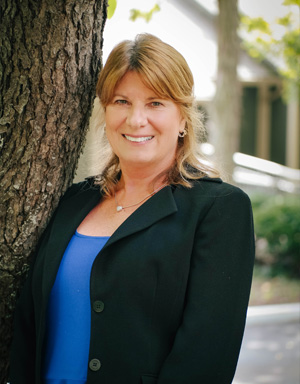Choosing a Financial Advisor
Today's episode focuses on helping folks get connected with not just an advisor, but the right type of advisor. We'll cover the importance of looking at potential advisor's licenses, products, service style, and fee structure.
About The Speakers
 Diane Rose
Diane Rose
Relationship Manager
Territories covered: AZ, NW, TX, OK, KS, MO, OH, MI, AR, MS, LA, FL
 Neil Craft
Neil Craft
Client Relationship Manager
Diane Rose: I am well, Neil, thanks.
Neil Craft: It is a pleasure to have you here with us today. Diane has worked with clients and financial advisors alike for several years. Helping folks get connected with, not just an advisor, but the right type of advisor. And I think the goal of today's episode is to really help our listeners think about the right things to consider when hiring that financial advisor.
Diane, obviously this may be intimidating or difficult and kind of confusing to get the process started.
Diane Rose: It really can be Neal, you know, lately it seems there are so many different types of companies offering financial advice that it's hard to know what type of advisor to turn to.
Neil Craft: Absolutely. They seem to come under a lot of different names or roles. Do they all offer the same services?
Diane Rose: No, they really don't. All advisors are in fact different. They do however, all hold licenses that allow them to work in their fields of expertise. They're typically registered in the state where they live and work as well as with the security exchange commission or sec, and the financial industry, regulatory authority also known Neal as FINRA. Some advisors further their expertise in specific areas by earning a designation, such as a CFP, which stands for certified financial planner, a CFA, which is a chartered financial analyst, or even Neil, a CLU, which is a chartered life underwriter.
Neil Craft: Interesting. So there's obviously several different roles there. Do they kind of have specialties within them?
Diane Rose: That's right, Neil. They do some advisors specialize in retirement and estate planning and may use insurance products, such as annuities or life insurance contracts, right. While others may specialize in working with younger families and they may use more traditional investments such as stocks and mutual funds.
So it's important that you ask your potential adviser, not only about his credentials, but also about the areas that he may specialize in, along with his years of experience in the business, you know, Neil knowing the advisors, strengths and weaknesses, before you sign on that dotted line can really help you avoid some potential problems.
Neil Craft: Okay. Sure. Yeah. That makes sense. So, financial advisors, do they give out the names of their clients or would I be able to speak to somebody who's had an experience with them?
Diane Rose: Yes, you can Neil. Some advisers are willing to share a few of their client's names as references so that you would be able to give them a call and talk with them to hear firsthand about any issues that they found in working with that advisor.
Neil Craft: Gotcha. I think our listeners could definitely put that into practice. Now we've been hearing the word fiduciary a lot lately when it comes to the financial industry, what exactly is a fiduciary?
Diane Rose: Well, a fiduciary that is a very important word Neal. When it comes to getting financial advice, the term fiduciary actually means a person who is ethically bound to always act in another's best interest.
Neil Craft: Well, I would hope that that goes for all business, but what should I expect an advisor to do for me in that regard? Yeah.
Diane Rose: That's right. You would expect that. And one way to ensure this is to work with advisors, Neil who are structured as registered investment advisors or commonly called RIA’s, are required to register with the SEC and are bound to this fiduciary standard in their work with clients. This helps to eliminate any potential conflicts of interest, making it easier for you to trust your advisor is working solely for your best interest.
Neil Craft: Yeah, that seems like a no brainer in terms of good practices for myself and our listeners. How can I find out if the, you know, a financial advisor is following that fiduciary standard?
Diane Rose: Good question. Neil, simply ask any potential advisor before you hire them questions like, do you consider yourself a fiduciary if they don't, ask them, why not? You should also ask if he or she is willing to disclose any conflicts of interest to you upfront that may interfere with them working solely on your behalf. And lastly, Neil ask them to put this commitment to you in writing.
Neil Craft: Gotcha. Yeah, that makes a lot of sense. I think another thing that is important to touch on here when considering a financial advisor is the fees, and sometimes it can be unclear. Sometimes it can be a little confusing. How do advisors get paid for their services?
Diane Rose: Well, when it comes to how you will pay a financial advisor, Neil, there are generally a few ways that they charge their clients depending upon the type of business they do and how their business is structured. Some advisors charge fees directly to their clients.
These client fees for example, could be in the form of investment management fees, which are typically charged as a percentage of the market value of your account. Another type of client could be, a flat or hourly fee, which is typically created for a financial plan that they draft for you.
Neil Craft: Understood. And don't advisors also charge commissions. And is there a difference there on the fees?
Diane Rose: Yes, you're right Neil, some advisors may also charge commissions and these are fees that you will pay for a certain financial transaction, such as buying an annuity or buying a mutual fund, or from just simply buying and selling stocks in your account.
Bottom line though, Neil, be sure to have a candid conversation with your advisor before you hire him as to how he will be compensated. And if there are any hidden fees that you may not see on a billing invoice or a monthly statement.
Neil Craft: Of course. That's great advice. Is there anything else that I should be thinking about or considering, or even asking an advisor directly before I hire them?
Diane Rose: Well I think there is, do you feel that communicating with your advisor Neil is better?
Neil Craft: I think so. It would be important to me. I would like to speak to them pretty often.
Diane Rose: Right. In fact, frequent and effective communication is, is found to be very important to success. When you're working with a financial advisor, you know, Neil, one of the chief grievances people typically have about their advisor is that they don't hear from him enough.
So I would recommend that you be sure to understand at the start of your relationship, how often, and by what method you can expect to communicate with your advisor. The frequency of your communication should be something, Neil, that you're comfortable with. Whether your discussions take place monthly or quarterly should be entirely up to you and your comfort level.
So I would recommend. That you make sure that the expectations are known upfront with your advisor before you hire him or her, as well as what type of communication you would like. Some people like to communicate through email. Other people want to talk personally on the phone or even in-person meetings.
Neil Craft: That makes a lot of sense. So for our listeners and by the way, thank you so much for, for this info so far. So how do our listeners go out and find a good advisor? Because you know, you're casting a wide net. Is there specific ways or, or methods there?
Diane Rose: Well, and you know, a lot of people say, well, I hired this advisor because my best friend really talked him up. And, you know, even though positive remarks can be helpful, it's always best to do your own research. Chances are, there are likely several financial advisors right in your town that you could interview. Also, a simple Google search will likely give you a good working list. There are also several websites that can help locate and match you with an advisor based on some of the needs or prerequisites that you would input.
Neil Craft: Okay. Yeah. And I think if our listeners kind of put some of those tools to work for them you know, they would definitely identify a few, the look good and kind of take it from there.
Diane Rose: Good. Yes. I would also recommend that you always set up in-person interviews with potential advisors. I think its best that you talk with them directly to find out if your personalities really match and always try to at least interview three candidates.
Neil Craft: Excellent. Well, Diane, thanks so much. I think our listeners are hopefully a little bit better equipped to go out and locate, identify and, and hire the financial advisor that works for them.
So thanks so much again, Diane. We really appreciate it.
Diane Rose: You're welcome Neil and good luck. And remember working with a qualified advisor that you can trust is working solely for your best interests and communicates with you frequently and effectively will make all the difference in your financial success.
Neil Craft: Thanks. And that's all for our episode here on the James Market Clarity podcast. Thank you for listening. And remember that at James Investment, your future is our purpose.
Recent Podcasts
Social Security & Cost of Living Adjustment
1st Quarter Update - Economic Outlook 2022
3rd Quarter Update - Economic Outlook 2021
Understanding Risks In Cryptocurrency
2nd Quarter Update - 2021 Economic Outlook
1st Quarter Update - 2021 Economic Outlook
Balanced
Typical Allocation Range
Equity: 40% - 70%
Fixed Income: 30% - 60%
Cash: 1% - 15%
The Balanced strategy has a target range of 40% - 70% in equities, with a mix of small, mid, and large capitalization stocks. We weight the stock exposure toward the most advantageous market capitalizations based on our research.
Sector analysis in an important part of our portfolio management process. Changes in sector weightings are made based on our analysis.
We believe that having the maximum flexibility to follow our research is the key to adding value to our clients' accounts.

